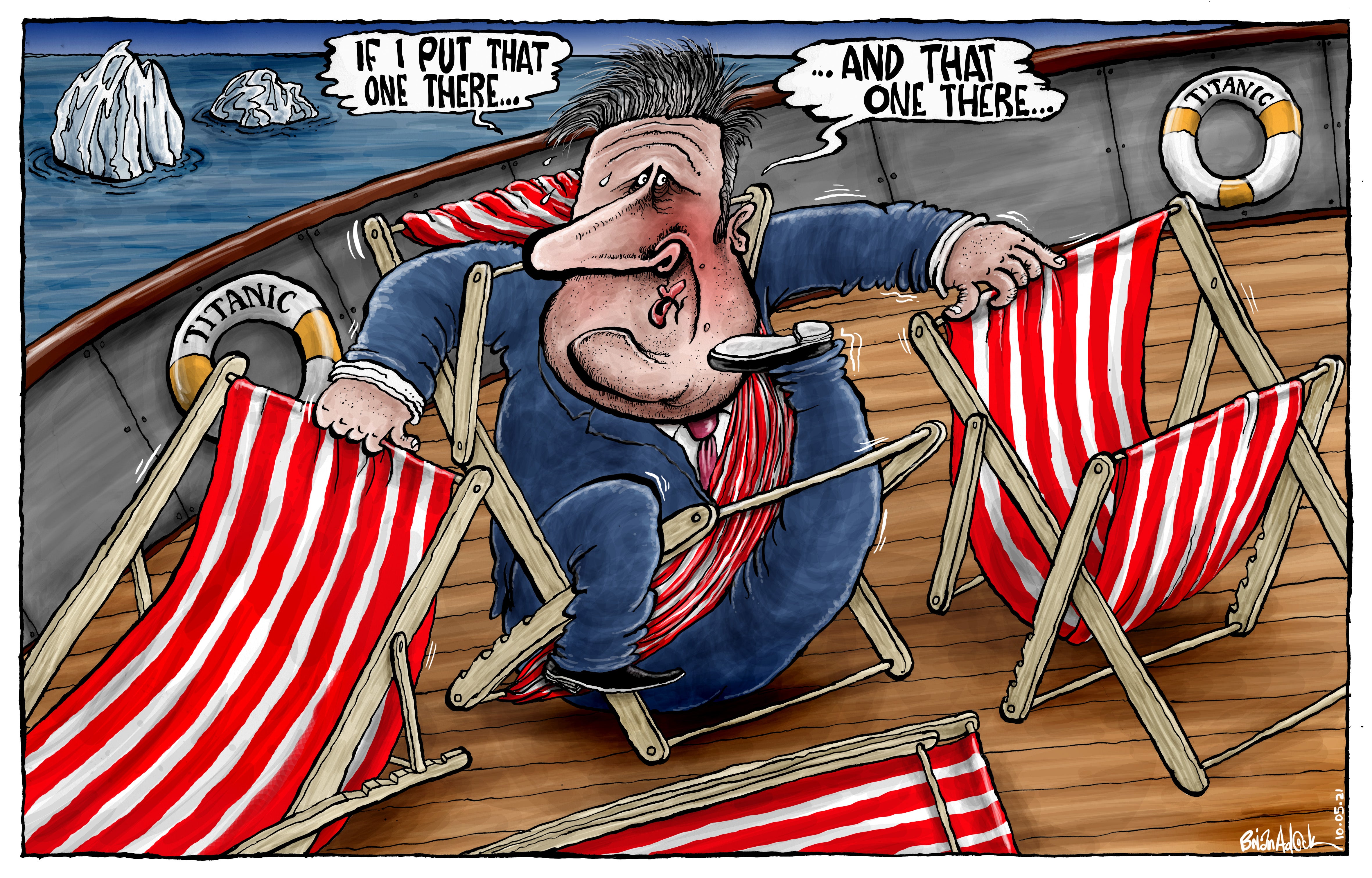Labour faces a huge challenge – a few quick decisions won’t change that
Editorial: Leader faces questions about how his party can win back voters that go beyond changes in the shadow cabinet

Keir Starmer should not be blamed for taking the Hartlepool by-election result seriously. The loss of the constituency, for the first time in decades, was hardly surprising, given the enormous showing in 2019 for the now essentially non-existent Brexit Party. But the scale of the loss was shocking.
More than 50 per cent of the voters voted Conservative, which means that those who wish to blame the appalling 2019 defeat on Jeremy Corbyn have to come up with answers for why, 18 months on, the party appears to have gone further backwards in a town it has precious little chance of governing without.
That a case can be made that Starmer has made no progress is naturally sufficient to reignite Labour’s forever war. The party’s Corbyn-venerating left wing feels vindicated. And as such, Starmer’s first response to the result was to sack his deputy Angela Rayner as Labour’s chair and campaigns coordinator.
The sacking of Rayner was immediately met with protests about the logic of sacking a northern working class woman, with a northern working class accent, when the task at hand is to win back northern working class towns. It arguably should not need to be pointed out that said northern working class towns are currently trampling over one another to vote for an Old Etonian. In the wake of the outcry, Rayner was eventually handed – after a day filled with speculation and delay – the job of taking on Michael Gove as shadow chancellor of the Duchy of Lancaster, as well as a newly-created role on the future of work.
There were further sackings to come. The shadow chancellor, Anneliese Dodds, among them – replaced by Rachel Reeves. This is particularly tricky. Dodds’s appointment 18 months ago was considered to have been extremely shrewd, but shrewd in the sense that one of Starmer’s most important tasks, back then, was to move Labour forward without suddenly defenestrating the entire Corbyn project. Given the importance of economic policy during the Covid-19 pandemic, a shadow chancellor should not be seen to be ineffective. Dodds will now take Rayner’s previous role as party chair and will conduct a review of policy, while Nick Brown - who served in both the Blair and Brown governments - has also been replaced as chief whip.
It is not a crime for a party leader to hire and fire in the wake of a poor result, but it has been suggested that the timing of Starmer’s initial – somewhat pyrotechnic – decision to remove Rayner as party chair, late on Saturday night, actually distracted attention from wins in London and Manchester for Sadiq Khan and Andy Burnham.
Actually, those results neatly demonstrate the scale of Labour’s challenge, and the huge significance of the Hartlepool result. That someone like Starmer should take over, and go backwards from the point that Corbyn had left them, should be a lightbulb moment for Labour. The party has spent 10 years, arguably 20, playing tug of war on the deck of a ship holed below the demographic waterline.
The Hartlepool result should give Starmer the courage to see how huge the problems are. It is not simply a case of Labour having changed too much, having become metropolitan and middle class. Northern working class towns have changed just as much.
What Starmer needs to come up with is a clear reason for such people to vote Labour and not Tory. And it can be done. The one bump on this demographic slide came in 2017, when Theresa May did rather worse than she imagined. The only policy that was noted, back then, beyond the Brexit turgidity, was a plan to make pensioners use the equity in their homes to pay for their dementia care. It did not go down well. So it shows these people are listening, and as such are persuadable.
The challenge he faces is formidable. It is a Conservative Party that has already shown huge appetite for economic intervention, and a quite possibly genuine commitment to levelling up. It is arguably no surprise that a government that has been directly paying 11 million people’s wages for a year is more popular than many thought. Boris Johnson made terrible mistakes in handling coronavirus, but the degree to which millions and millions of people still felt, perhaps for the first time, that the government had their back has been vastly underestimated.
If the Conservatives really do deliver on promises to “level up” in what used to be Labour towns, then Johnson will likely reap the rewards at the ballot box again. But those promises are going to be very hard indeed to keep.
Therein lies Labour’s only real hope – that it can steal its clothes back from the Tories, when it becomes clear they are unable to pay for them.
In that context, hiring and firing a few shadow ministers, three years out from an election, will not make much difference at all.
Join our commenting forum
Join thought-provoking conversations, follow other Independent readers and see their replies
Comments